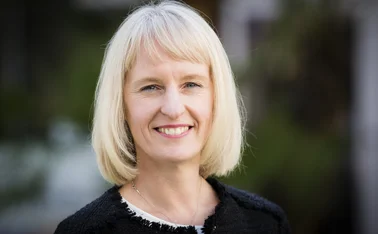
Blog: How to access the European Market after Brexit as an MGA or broker

Nikolaus Suehr, of KASKO, and David Goodley, of City Compliance share advice on setting up in the EU as the risk of a no-deal Brexit draws closer.
While this year has been largely dominated by Covid-19, the Brexit transitional period end date is soon approaching. Since the agreement between the UK and the EU is not set in stone yet, businesses are seeking ways to prepare for accessing the European market without a deal.
The two insurance markets have always been important for each other. While the EU offers a largely unified market, the UK has unique expertise in assessing, underwriting and placing complex or special risks, creating a valuable synergy. Germany in particular has a strong economic and regulatory reputation within Europe, plus an international experience, especially in Hamburg, the third largest European shipping port. This has fostered a selected powerful network of MGA businesses and accompanying service providers such as accountants, banks and notaries.
Act quickly
Coverholders and brokers need to get their affairs in order and organise local authorities to write business in the European Union by the end of the year, forcing them to make a quick decision on what partnerships to make. Many have managed to shift their operations already, but not all.
There are a couple of reasons for that. For some it became clear later that even for those only wholesaling, carrying out transactions via brokers or agents rather than directly with the policyholder, will be required to have an EU setup. Those that did engage early learned the hard way that the usual suspects such as Cyprus, Ireland, Luxembourg, or Malta are very slow or reluctant to grant the required licences or require excessive local “compliance” personnel to be hired, or all of the above.
We’ve been through the process and want to share our experience establishing a presence in Hamburg, and what you need to consider when choosing partners.
How to select a country
As you could have guessed, we’re in favour of choosing Germany, but wherever you decide to access the market, this is what you should consider:
- How onerous and experienced is the regulator with your type of business?
- Do you have access to service providers like banks, lawyers, notaries and accountants who understand your business and the unique multilingual and country setup?
- Does your setup show enough substance (meaning actually having operations located in the subsidiary and not just a shell company) to pass EU scrutiny?
Germany, and Hamburg in particular, scores surprisingly high on the first point. It is an insurance hub with a strong tradition of MGAs originating from the shipping business, as well as regulators who are well-versed with Lloyd’s and other programmes. Despite German being the prevalent business language, international trading ties are strong and English is a well-established second language with many service providers. As for substance, it is a moving target that we can assume needs to be provided. In Germany, this currently means having a local MD with insurance expertise overseeing operations.
Selecting a partner
We can’t recommend simply googling how to set up a local MGA or broker. Insurance is about expertise and trust and these are the things you need to look at when looking for a partner
- Do they understand both sides, the UK and EU?
- Do they have experience with such partnerships?
- Do they have access to regulators?
- Do they have access to banks, lawyers, accountants and notaries so they can properly explain your case?
- What is the price point?
- Do they understand how to set up a back branching operation in the UK and which different application regimes you have?
Based on our German experience, it has been a seamless process on all fronts, but there are two things to keep in mind. Firstly, getting a local Professional Indemnity (PI) cover with back branching operations in the UK is not feasible at the moment. You will need to keep your existing cover and add the German subsidiary and UK branch to the cover. Secondly, setting up a bank requires a Know Your Customer (KYC) process and you need to show personal details for anyone with more than 10 percent shareholding.
We’ve seen a lot of demand for alternative options over the last few months and were able to advise a number of people on accessing target markets in a much easier and quicker way via an EU-based insurance intermediary. If it seems impossible to you right now, believe us when we say it is worth it because while the future might feel uncertain at this point, being prepared is going to be useful no matter the outcome of this divorce between the UK and the EU. One thing is certain, the EU will remain a unified and attractive market, and the UK and its London market the prime global center for experienced and speciality underwriting and capacity.
By Nikolaus Suehr, is co-founder and CEO of KASKO, and David Goodley, principal consultant at City Compliance
Only users who have a paid subscription or are part of a corporate subscription are able to print or copy content.
To access these options, along with all other subscription benefits, please contact info@insuranceage.co.uk or view our subscription options here: https://subscriptions.insuranceage.co.uk/subscribe
You are currently unable to print this content. Please contact info@insuranceage.co.uk to find out more.
You are currently unable to copy this content. Please contact info@insuranceage.co.uk to find out more.
Copyright Infopro Digital Limited. All rights reserved.
As outlined in our terms and conditions, https://www.infopro-digital.com/terms-and-conditions/subscriptions/ (point 2.4), printing is limited to a single copy.
If you would like to purchase additional rights please email info@insuranceage.co.uk
Copyright Infopro Digital Limited. All rights reserved.
You may share this content using our article tools. As outlined in our terms and conditions, https://www.infopro-digital.com/terms-and-conditions/subscriptions/ (clause 2.4), an Authorised User may only make one copy of the materials for their own personal use. You must also comply with the restrictions in clause 2.5.
If you would like to purchase additional rights please email info@insuranceage.co.uk







